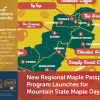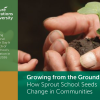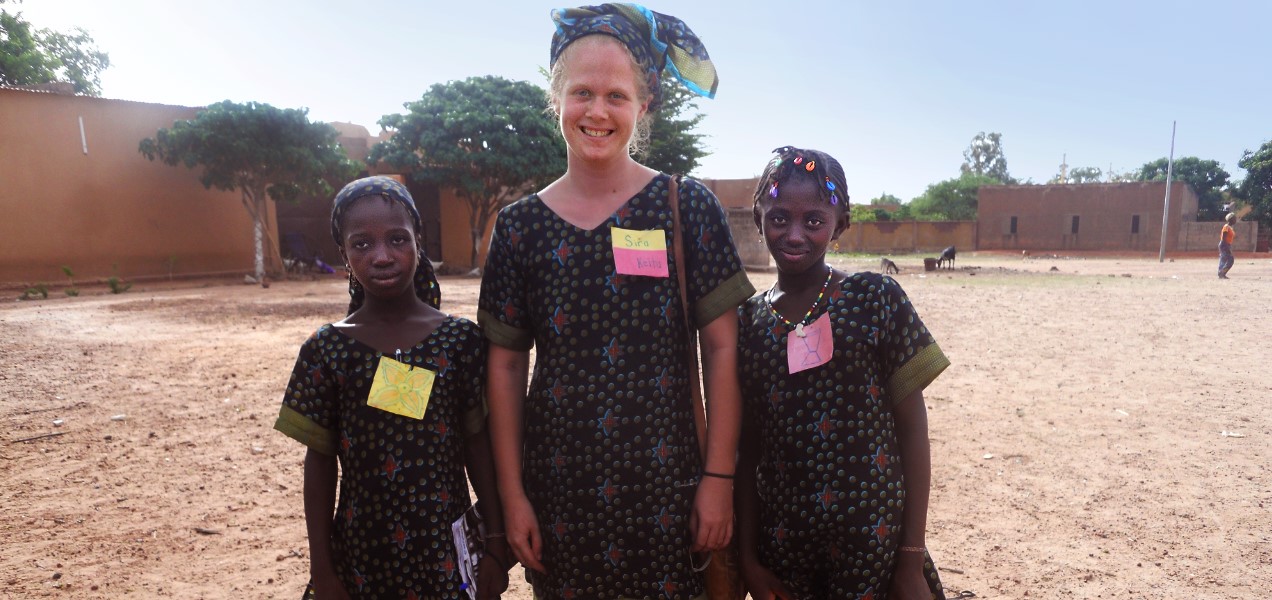
After a Coup Forced her to Leave Mali, a Returning Peace Corp Volunteer Put Down Roots in her Community
Future Generations University helps Bethany Lewis make a difference at home.
Bethany Lewis wanted to stay on for another year in Mali with the Peace Corps. Then, in March 2012, military officers launched a coup. Two weeks later, she was safely back in the United States, which al-lowed her to start her journey with Future Generations University a little earlier than planned.
Back in the landlocked West African nation, her two-year stint with the Peace Corps had been nearing an end. By the time news trickled out of Bamako, the capital, and made its way 600 miles south to the community Lewis was stationed in, soldiers had already stormed the presidential palace and barricaded the state television studios. The Sikasso region was isolated and safe, and Lewis’s work with a woman’s collective focused on composting, fertilization, and irrigation projects were ongoing. Still, the decision was made to evacuate non-essential personnel.
Lewis spent the journey north, to the heart of the unrest, thinking about what would come next. She boarded one of the last available flights out of the country, surrounded by other Peace Corps volun-teers. And just like that, her time with the Peace Corps was over.
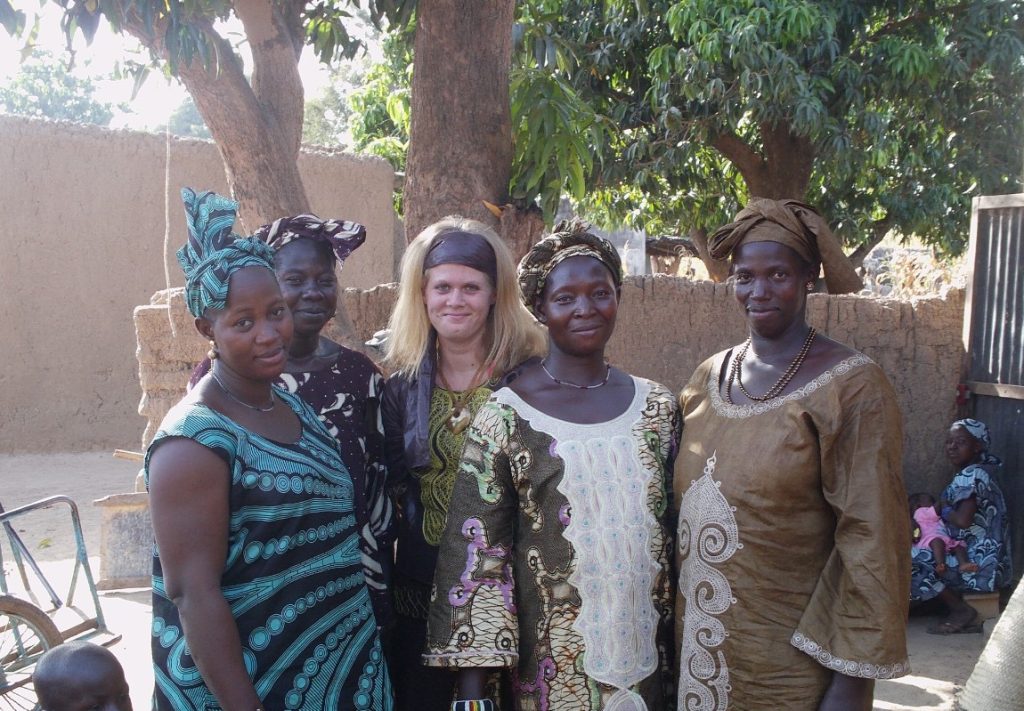
“I couldn’t stay in Mali, but I wasn’t done learning,” the West Virginia native explains. After two years in Mali, and stints in Mexico before, Lewis felt called home. There is a deep need in Appalachia and a deep divide between urban and rural communities, she explains. Beyond the stereotypes, there are people working hard to transition from extractive industries to more sustainable livelihoods. Leaving the Peace Corps abruptly was disorienting but Lewis knew she wanted to deepen her learning in service to her local community. She began researching educational programs open to Returning Peace Corps Volun-teers. Then, in 2013, she discovered Future Generations University’s Master of Arts in Applied Commu-nity Development program–the exact path of service she was looking for–right in her own backyard.
“It was a wonderful combination of being able to expand my world and my understanding, while at the same time developing work that gives back to my community.”
Looking back, Lewis says the program felt tailor-made for her. A university that grew out of a develop-ment organization, the program draws students from around the world that feed a rich virtual class-room environment while tailoring lessons for each student to fashion true community resiliency where they are. “It was a wonderful combination of being able to expand my world and my understanding, while at the same time developing work that gives back to my community.”
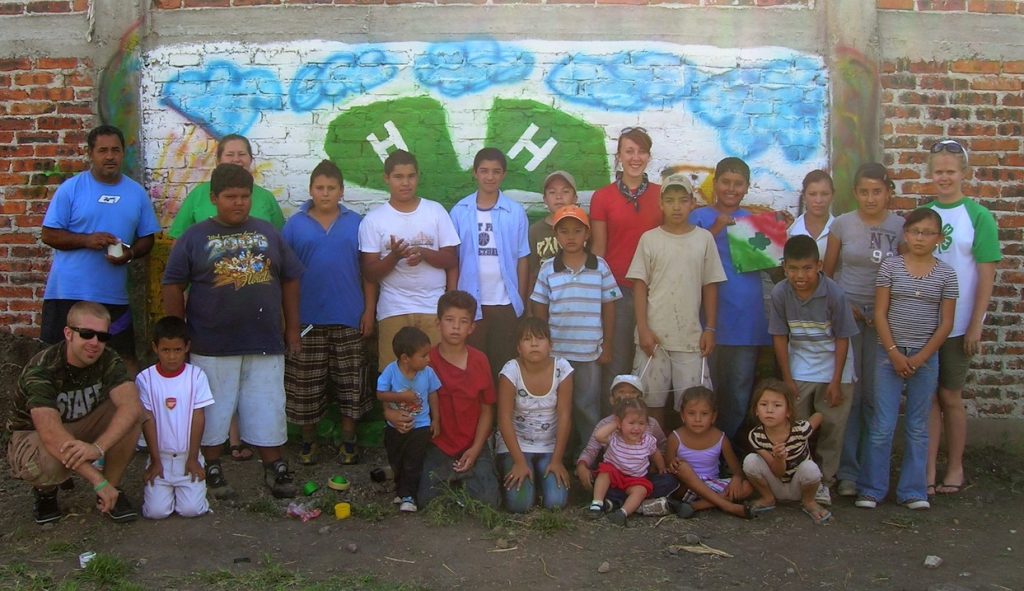
In that estimation, Lewis isn’t alone. Dozens of Returning Peace Corps Volunteers have studied at Fu-ture Generations, all finding the same thing: a path to translate the skills they learned overseas into their communities. It’s a skill set that’s served Lewis well as she’s worked in southern coal towns, helping workers reskill and low-income families access emergency services.
Then COVID-19 hit. Lewis had started at the West Virginia Food and Farm Coalition in 2019, helping with administration and operations. As isolation orders spread, job losses mounted and life ground to a halt across the state, Lewis looked weeks down the line at a problem still over the horizon, estimating the impact on food systems.
The concern kept her up at night. How would families feed themselves and how would farmers survive?
Lewis and the Food and Farm Coalition saw an opportunity to expand the state’s SNAP-Stretch initia-tive–a program for people with low- and no-income to stretch their food assistance money further for healthy and local produce, meat, dairy, and eggs. That meant getting more farmers involved, more mar-kets onboard and able to accept the payments and more farm stands established across the state in ac-cessible locations. It also meant convincing more West Virginians to forgo grocery stores and processed foods to meet with producers.
That relationship, Lewis says, has the potential to transform the agriculture landscape for both farmers and consumers long after the pandemic is over.
“We’re focused on making that connection, on keeping the focus on local food, local economies, and healthy options,” explains Lewis. She wrote grant after grant to ensure the SNAP-Stretch program could keep pace with demand. Since the pandemic, the West Virginia Food and Farm Coalition has seen a 600 percent increase–that means hundreds of thousands of dollars directly to farmers when they need it most (95 percent of farms in the state are family-owned and operated) and families going home with healthy options.
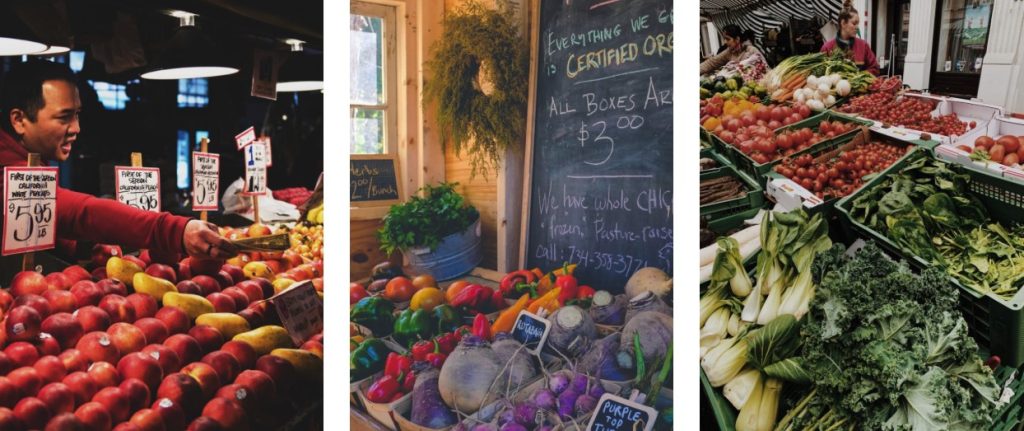
Ever the optimist—it’s part of the DNA at both Future Generations and Peace Corps, Lewis explains—the upside of the tumult and uncertainty of these months have been more people interested in local food and economies. “COVID brought people out to shop with their farmers,” she says. “I’ve seen fami-lies going home with carloads of vegetables and fruits that they can preserve to eat during winter. There’s an appeal right now: this farmer planted it, grew it, harvested it and they’re handing it to you.”
In Mali and now in West Virginia, the challenges Lewis has confronted are different but the path to sus-tainable, local solutions is the same. It starts with listening to communities. It’s a framework Lewis learned at Future Generations, sharing classrooms with students from Afghanistan, Uganda, Zimbabwe, and across the United States. From there, the task is to understand what communities are facing and jointly envision a path forward. That’s what she does every day, advocating for better agricultural policy in the statehouse while simultaneously working with farmers, helping them tap into new markets, and families looking for healthy ways to feed themselves.
“People are hurting. Finding resources is hard,” she explains of the situation facing many West Virgini-ans. “I have tools in my tool belt to communicate, to work with communities that don’t know me, to plan and develop a roadmap for common goals.”
In the year following, the SNAP Stretch program continues to grow and in 2021 the state benefited from an economic impact in its food sector and beyond of $1,674,888.00. Currently, the Coalition is looking to secure state budget funding to ensure that the program is supported beyond the current federal grants in place through 2025.
“This is just one of the main programs coordinated by the Coalition founded in working with communi-ties around the state through a theory of accompaniment dependent on developing a workplan based in community just as SEED-SCALE and the other development principles I learned during my graduate studies.”
